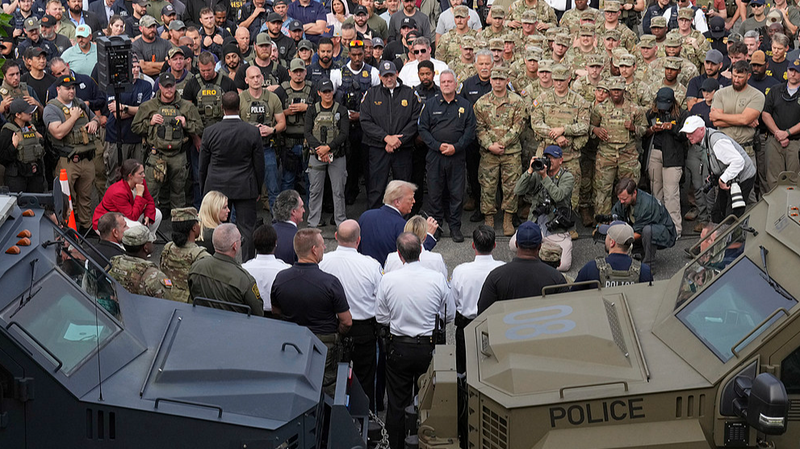In a bold escalation of federal policing, U.S. President Donald Trump announced plans on Friday to extend his high-profile crime crackdown to Chicago—calling the city “a mess” and warning he may take direct control if local leaders don’t comply. This follows his deployment of National Guard troops and federal agents in Washington, D.C., aimed at reducing violent crime.
Trump’s actions in the nation’s capital came amid his claim that crime there is “out of control,” despite official data showing a downward trend since a 2023 peak. Undeterred, he told reporters that Washington Mayor Muriel Bowser must “get her act straight” or risk having the federal government assume full responsibility for law enforcement.
Shifting his focus to Chicago—and even hinting at New York and San Francisco—Trump has yet to outline the legal basis that would allow the federal government to override municipal authority outside the unique constitutional status of D.C. Critics say such a move would clash with the Tenth Amendment, which reserves most policing powers to states and cities unless federal constitutional rights are at stake.
Chicago Mayor Brandon Johnson responded that he takes the president’s comments seriously but has received no formal notice of military or federal deployments. He called Trump’s approach “uncoordinated, uncalled for, and unsound,” and urged the administration to support evidence-based strategies—like data-driven policing, community outreach, and social investment—to curb violence.
The standoff underscores a broader debate over the balance between federal power and local autonomy—a question that resonates well beyond U.S. borders as cities around the world wrestle with public safety, civil liberties, and effective governance. As this story unfolds, the spotlight will be on how far Washington is willing to go in reshaping urban crime policy.
Reference(s):
Trump threatens federal intervention in Chicago, following D.C.
cgtn.com



